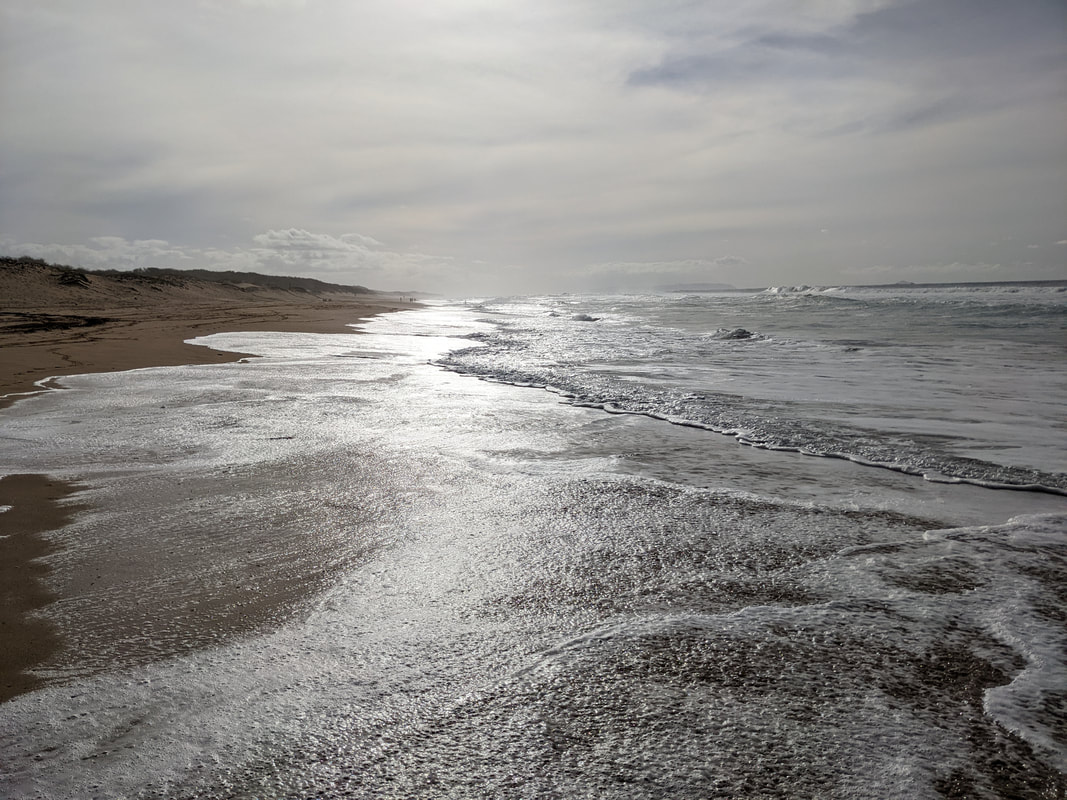|
"The Fear of and Desire for Closeness"
Transformation & Transcendence Roundtable Podcast Franklin Sollars, with Farid Alsabeh, Lea Dickinson, Joshua Morrow, and Ben Bennett-Carpenter https://www.youtube.com/watch?v=RoazXCTZcic "Accepting, Handling, and Growing Through Frustration"
Transformation & Transcendence Roundtable Podcast Franklin Sollars, with Farid Alsabeh, Joshua Morrow, and Ben Bennett-Carpenter "Frustration is a part of life, but it can be a helpful tool in growth and advancement. Working with frustration instead of shutting it out, accepting it as a dance partner in life, and using it as a collaborator, you can accomplish more in life and lead a more fulfilling life. The Roundtable discusses frustration and how to handle and treat difficulties in life. Our hosts discuss how to use frustration as a tool to move forward and grow in life, inching closer to your goals." https://www.youtube.com/watch?v=DrWF3kx8ysk "Memetica is a romantic spirituality in an age of scientific secularism. ALL of this may be described in coherence with science and with a secular philosophy and polity.
Memetica is a romantic spirituality in an age of religious humanism. It fits with a religious outlook that, one way or another, always comes back around to humanity, even as it pursues divinity. Memetica is a romantic spirituality in an age of ideational authoritarianism. One idea of one set of ideas centered in one set of authorities is romantic. Humans, generally speaking, desire such a one-ness, even in, and precisely because, they live within and also desire diversity and plurality. But a ‘spirituality’ so to speak of ‘memetica ecologica’ offers unity and diversity, the e pluribus unum. (Los Estados Unidos de Memetica.) (People’s Republic of Memetica.)" -Fragments of Memetica, No. 13., adapted [20201009] Image credit: LBC, 2019 "Pending" and "Top Floor" at Unlikely Stories Mark V
"It's the twelfth of December and no one is stirring." https://www.unlikelystories.org/content/pending-and-top-floor "[Memetica] offers us a way ‘to have it all together’ in a way that feels like it could be enough or more than enough for any individual, while also captivating large portions of, or the whole, world.
It’s the sense of The One within one individual and also as one people: One · One · One Part of the romance is the poetics of mathematics, the pure geographic, geometry of an individual point moving in space-time and all the differential value that creates at every second. This, not this, this, not this, this, not this, not this, not this, not this, this, and so on unendingly." -Fragments of Memetica, No. 12, pt. 2 [20201009] "What is the spiritual path?" / Discussion of the book Love Outraged by Franklin Sollars
Transformation & Transcendence Roundtable Podcast Franklin Sollars, with Farid Alsabeh, Joshua Morrow, and Ben Bennett-Carpenter https://www.youtube.com/watch?v=dZuAMQOCNH4www.youtube.com/watch?v=dZuAMQOCNH4 Point of Turn live performance @ MOCA Geffen -- Los Angeles (May 13, 2023)
Postponed due to weather in February, Alan Nakagawa's "Point of Turn" project returns to the MOCA Geffen schedule as part of KCHUNG radio's line up of performances: Saturday, May 13, 2pm-6pm, in Los Angeles "...Point of Turn, is Nakagawa’s first vibratory sound work involving the human voice; utilizing collected stories about moments or events that resulted in someone leaving their organized religion. For this work, the combining of these stories and the analog data stretching of a verse and chorus of the 1970’s seminal pop band, 10CC’s hit song, I’m Not in Love. Point of Turn is a commission by Prospect Arts." https://www.moca.org/program/kchung-public-labor Call for Papers in the areas of media law, policy and ethics:
The Journal of Media Law & Ethics (ISSN 1940-9389) invites theoretical and analytical manuscripts that advance the understanding of media law and ethics in society. Submissions may have a legal, historical, or social science orientation, but they must focus on media law, policy or ethics. All theoretical perspectives are welcome. All manuscripts undergo blind peer review. ... Past issues have published articles in disinformation, social media influencing, defamation, privacy, copyright, censorship, licensing, indecency, media access, reporters’ privilege, news accuracy, bias, rule of law, and media literacy. Submissions in these and similar areas that explore legal, policy, and ethical issues facing the media are welcome. Access to JMLE is available to the public online at no charge. https://www.k-state.edu/media-communication/research/journal/CFP-JMLE.pdf Poems Wanted for next issue of Cruel Garters (No. 14)
https://cruelgarters.submittable.com/submit?fbclid=IwAR0bbz_M8cJ7UY4q0IZ--KspP_yIlsfKZhPpNplEdRhyBtBUUKOLPnU8_nA "Surrendering and Transforming Your Ego Self"
Transformation & Transcendence Roundtable Podcast Franklin Sollars, with Lea Dickinson, Joshua Morrow, and Ben Bennett-Carpenter "The group of life coaches and therapists discuss building your ego and how it helps you grow. Ego is essential to your self-esteem and confidence and realizing you have consistent opportunities to grow. So many may think that ego is just about being too full of pride, but ego is on a spectrum. Finding your balance on the spectrum to handle your growth so you can transcend in life is important." https://www.youtube.com/watch?v=VgkyJwWaQQc "Everything is up on the marquee."
Book of Matches, Issue 8 (Spring 2023) -- out now: https://online.fliphtml5.com/qoqiq/vjoi/#p=159 "Memetica is a romantic spirituality of ‘self’ or ‘people’ and ‘world.’ It’s a view of the world, or worldview. Self, or people, can be individual and/or collective and includes a sense of a ‘collective self.’
But understanding memetica is not only ‘visual’ and not only about a world ‘picture’ or ‘picturing’ the world or ‘imagining’ (imaging; imagination). Understanding memetica is also sensorial and ‘phenomenal’, including any way that information is detected by some one. Part of the ‘romance’ of this vision and experience is that it is sweeping. It sweeps us off our feet. And it does so over and over again, like waves coming in from the ocean." -Fragments of Memetica, No. 12, pt. 1. [20201009] "Memetica is the current order of things that permeates all levels and niches. ‘Information’ is the language of the universe as we now know it.
It applies to human cultures, technologies and economies. The ‘currency’ is information and that currency builds a structure for itself to ‘exchange’, increasing in more complex and far-reaching ways. Memetica applies to biology. The very discussion of life itself is an ‘informational’ and ‘complexity’ discussion. It applies to the cosmos (at its most physical and expansive): infinitesimal and small, or exponentially large. Either way (and both ways) we have a discussion about ‘information’ in both quantitative terms as physical stuff and qualitative terms as a value differential that is experienced by ‘living beings’ or organisms / entities operating at a certain level of complex organization." -Fragments of Memetica, No. 11. [20201009] "On Memes: A Very Short Introduction to Memetica...."
Talk by Benjamin Bennett-Carpenter @ the annual meeting of the Michigan Academy of Science, Arts< & Letters. 2023 https://www.youtube.com/watch?v=vEnqC3usT60 Abstract: As is widely known, memes are commonly understood as catchy items on social media – often an image with text – that “goes viral” and gets shared/spread among many people online. However, this talk discusses the older, original, and more expansive sense of “meme”, introduced and elaborated upon by Dawkins, Blackmore, and Dennett, among others, that initially means something like a “unit of cultural information.” One way rhetorically and philosophically these days to conceive of “it all” is as a massive ecology of memes. What I call “memetica” is another way of exploring a rhetoric and conception of a totalizing ecology of information. The term “information” may cover a massive amount of multi- and cross-disciplinary conceptual territory involving “bits” in physics, “genes” in biology, and “signs” in arts/humanities. This talk very briefly introduces the origins, rhetoric, and concept of memes as an initial way in to the topic of information – arguably one of the most powerful, dynamic concepts in contemporary existence. Videography credit: Gracey Bennett-Carpenter, 2023 [Correction: The reference in the talk and slides to Bateman should, instead, be Bateson (1979).] "Developing Relationships & Emotional Closeness"
Transformation & Transcendence Roundtable Podcast Franklin Sollars, with Farid Alsabeh, Lea Dickinson, Joshua Morrow, and Ben Bennett-Carpenter https://www.youtube.com/watch?v=QKGXn8BsCmA "An important shift from noun to verb (and back again) takes place with ‘meme.’
As Dennett has put it, a meme is 'a way.' A meme is a differential process within a context. That’s where ‘value arises’ (cf. Bateman). A noun is a calcification or a snapshot in time of a verb. The verb is where the action is. A noun is a useful placeholder in the middle of the overall action whether that action is very fast or very, very slow. A noun is documentation, a record of what has happened, an artifact of past actions: e.g., a chair Ben happiness Tuesday" -Fragments of Memetica, No. 10. [20200926] "Problem Solving, Anxiety, Fear, & Growth"
Transformation & Transcendence Roundtable Podcast Franklin Sollars, with Farid Alsabeh, Lea Dickinson, Joshua Morrow, and Ben Bennett-Carpenter https://youtu.be/BaKTKlD1OEY Transformation & Transcendence Roundtable Podcast: "What is Transformation and Transcendence?"
Franklin Sollars, with Farid Alsabeh, Lea Dickinson, and Ben Bennett-Carpenter https://youtu.be/ovnu_7gonWI Out now: "Emotional Storms" & "Speak of Galaxies" by Ben Bennett-Carpenter
in Franklin Sollars, Food for Thought, Psyche, Spirit, and Soul (2023), pp. 133-137, 140-141 (Printed in Monlee, Illinois: Independently published by Dr. Franklin Sollars, PhD). https://www.amazon.com/Food-Thought-Psyche-Spirit-Soul/dp/B0BW31G6G2/ref=tmm_pap_swatch_0?_encoding=UTF8&qid=1677801452&sr=8-1 Transformation & Transcendence Roundtable Podcast, Episode 1
Franklin Sollars, with Farid Alsabeh, Lea Dickinson, Joshua Morrow, and Ben Bennett-Carpenter www.youtube.com/watch?v=_-RFQ2voPsI |
AuthorBenjamin Bennett-Carpenter writes philosophy and poetry. Teaches at a public university in North America. Consults/coaches (executive, life, creative). Archives
April 2024
Categories |


 RSS Feed
RSS Feed